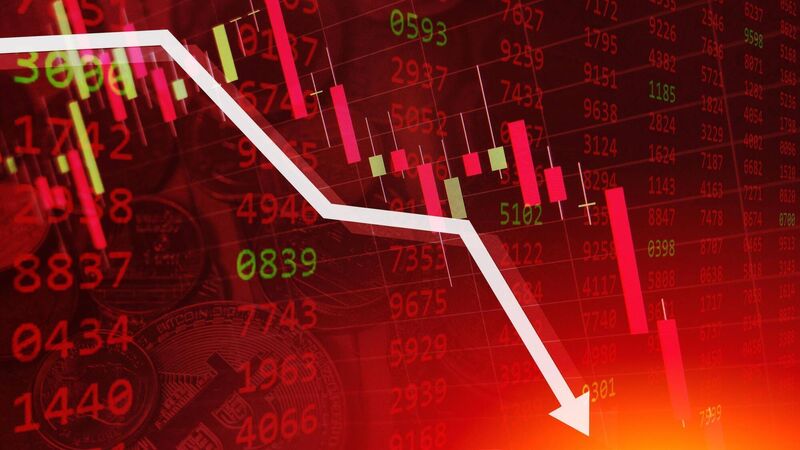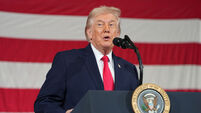Global stocks tumble again as China hits back at US tariffs

Global stocks tumbled for a second day on Friday after US president Donald Trump's sweeping tariff plans wiped $2.4tn (€2.1tn) off Wall Street equities, with the sell-off deepening after China said it would impose additional tariffs of 34% on all US goods. Picture: iStock
Global stocks tumbled for a second day on Friday after US president Donald Trump's sweeping tariff plans wiped $2.4tn (€2.1tn) off Wall Street equities, with the sell-off deepening after China said it would impose additional tariffs of 34% on all US goods.
Banking stocks cratered as investors fretted about growth and priced in far more central bank rate cuts, with benchmark 10-year US Treasury yields sliding to their lowest since October, after Mr Trump slapped a 10% tariff on most US imports and much higher levies on dozens of countries, with Ireland and the EU hit with a 20% tariff.











